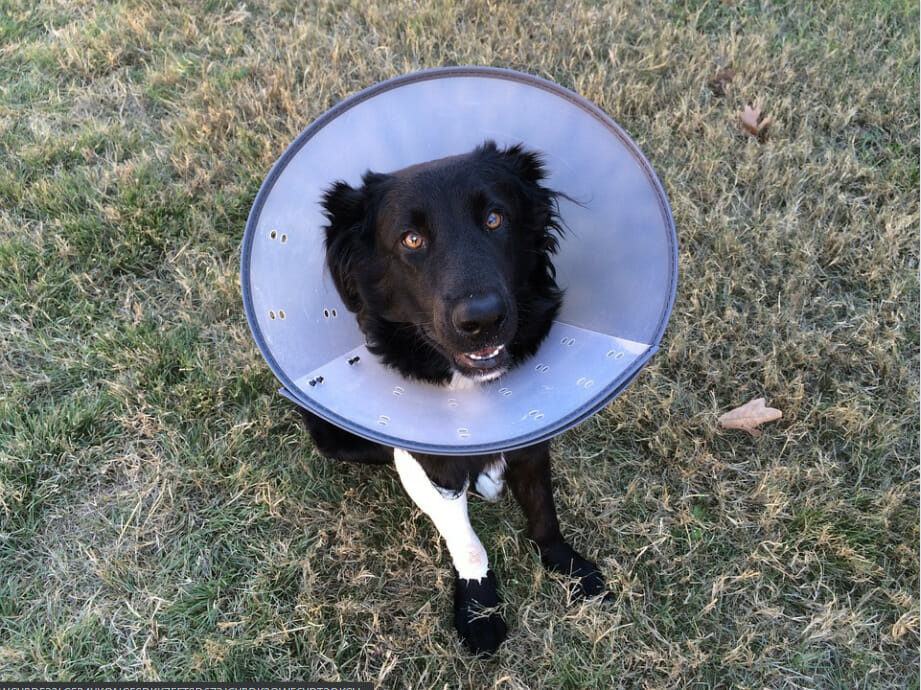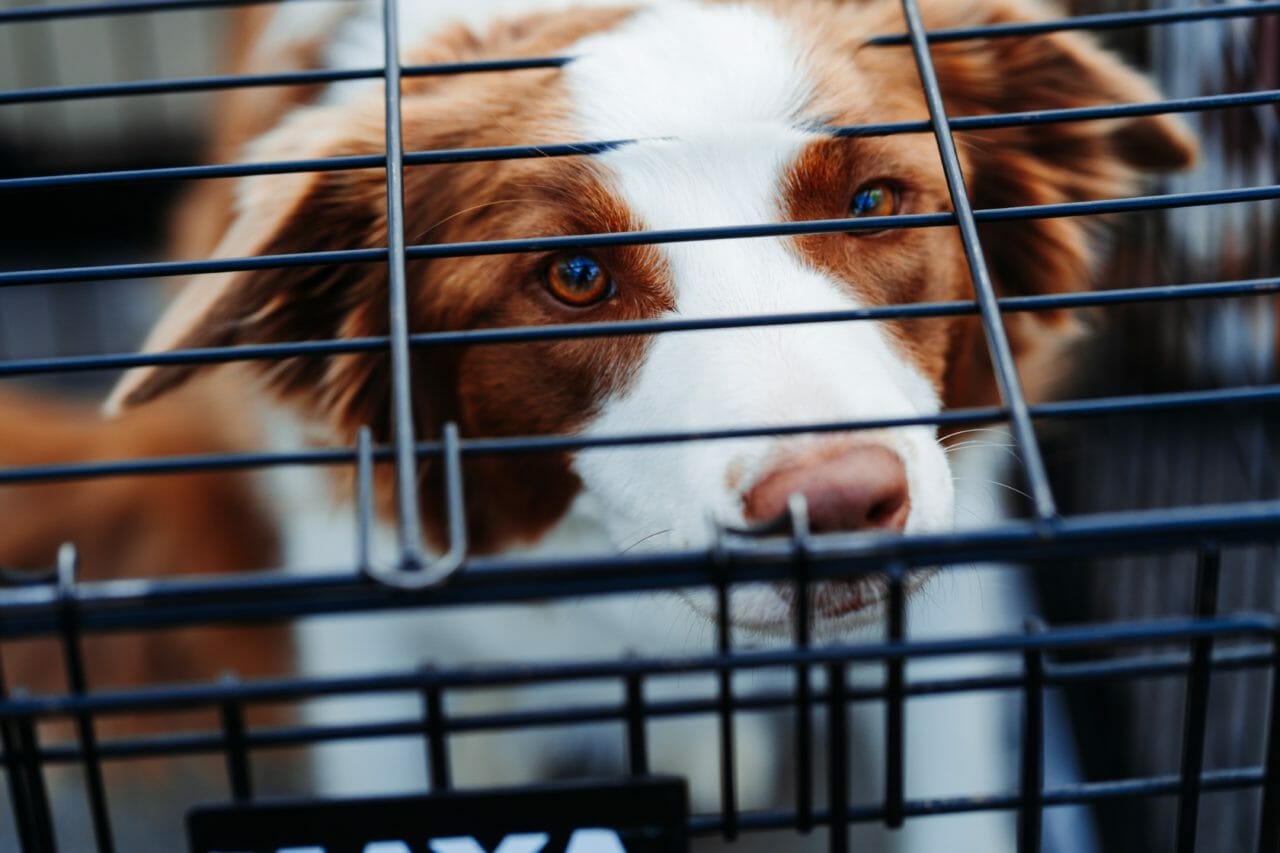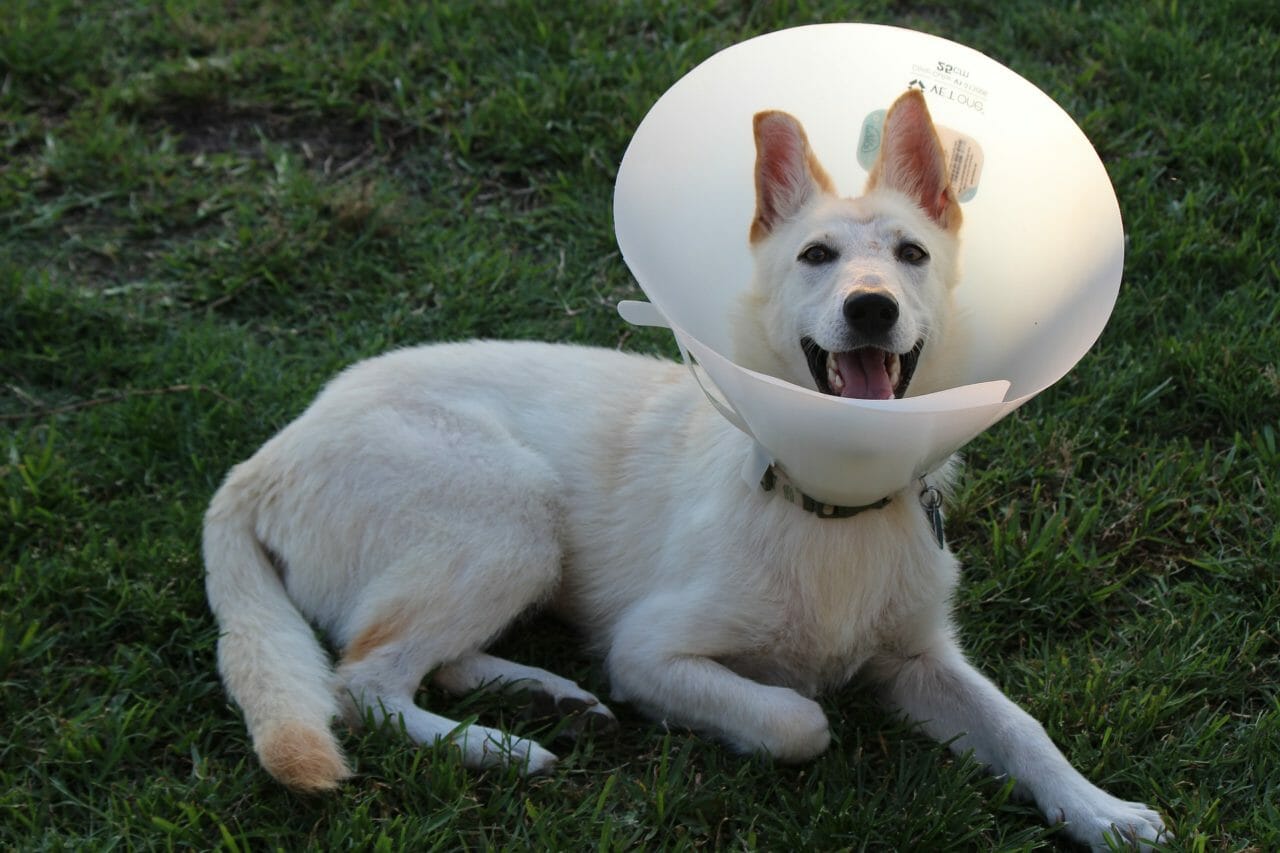Learn more about the types and causes of canine ear infections, the symptoms and signs, and discover if any of these infections can be spread to other dogs.
As a dog parent, you want nothing more than to see your furry friend happy and healthy. But sometimes, health problems can arise — and one of the most common issues among dogs is ear infections.
Ear infections can be painful and frustrating for both you and your pet. But what exactly are ear infections? And are they contagious?
In this article from the experts at RehabPet.com, we’ll take a look at the types and causes of canine ear infections, the symptoms and signs, and discover if any of these infections can be spread to other dogs.

What Are Ear Infections?
Ear infections, also known as otitis externa, otitis media, and otitis interna are a buildup of bacteria, yeast, or ear mites in the ear canal. This can lead to inflammation and irritation of the delicate tissues in the ear, which can be painful for your dog.
As mentioned, there are three types of ear infections:
- Otitis Externa: This is an infection of the outer ear canal and is the most common type of ear infection in dogs.
- Otitis Media: This is an infection of the middle ear and is less common than otitis externa.
- Otitis Interna: This is an infection of the inner ear and is the least common type of ear infection.
Causes of Ear Infections
There are a number of different causes of ear infections in dogs, including:
- Allergies: Allergic reactions to food, pollen, or other substances can cause ear inflammation and lead to ear infections.
- Hormonal Imbalances: Conditions like hypothyroidism can cause changes in the skin that make it more susceptible to infection.
- Foreign Bodies: Items like grass seeds or dirt can become lodged in the ear canal and lead to an infection.
- Excessive Moisture: Swimming, bathing, or even living in a humid climate can lead to excessive moisture in your dog’s ear canal. This moisture can create an ideal environment for bacteria or yeast to grow.
- Hair Growth: Dogs with long, floppy, hairy ears are more prone to ear infections, as the hair can trap dirt and moisture. If your dog has long ears, this hinders the amount of airflow that’s able to reach the ear canal to dry it out.
- Abnormalities: Dogs with abnormalities of the ear canal (like a narrow canal) are more likely to get ear infections.
- Mites: Ear mites are parasitic insects that live in the ear canal and feed on ear wax and skin oils. These mites can cause irritation and inflammation, leading to an infection.
- Yeast Infections: Yeast is a type of fungus that’s found on the skin. When the ear canal is moist and dark, it can create an ideal environment for yeast to grow. This overgrowth can lead to an infection.
- Bacteria: Bacteria are everywhere, and they can easily enter the ear canal through open wounds or breaks in the skin. Once the bacteria are in the ear, they can multiply and cause an infection.

Symptoms of Ear Infections
The most common symptom of an ear infection is intense itching or scratching at the ears. Your dog may also shake their head frequently, hold it to one side, or rub their face and ears against your furniture.
You may also notice a foul odor coming from the ears, redness or swelling of the ear flap, or discharge from the ears. This discharge may appear yellow, green, or even bloody in some cases. If your dog has an inner ear infection, they may also show signs of dizziness or balance problems.
If you notice any of these symptoms, it’s important to take your dog to the vet for an examination as soon as possible. Ear infections can be painful, and if left untreated, they can lead to more serious problems.
Diagnosing Ear Infections
Your veterinarian will begin by performing a thorough physical examination of your dog’s ears. This will include looking inside the ear canal for any redness, swelling, or discharge.
Your vet may also check for any foreign bodies or growths.
In some cases, your vet may recommend a course of antibiotics to clear up the infection. In other cases, your vet may prescribe medicated ear drops or ointments to help soothe the itching and inflammation, giving the infection time to run its course.
Are Ear Infections Contagious?
No, ear infections in and of themselves are not contagious. However, the mites (Otodectes cynotis) that can cause ear infections are contagious. These mites can be passed from one dog to another, so if your dog has them, it’s important to treat all of your dogs to prevent the spread of the mites.
How To Prevent Ear Infections
There are several things you can do to help prevent your dog from getting ear infections:
- Keep Their Ears Clean and Dry: Clean your dog’s ears regularly with a gentle, alcohol-free ear cleanser. This will help remove any dirt, wax, or debris that could cause an infection. After bathing your dog, use a towel to dry their ears thoroughly.
- Don’t Let Them Get Wet: If your dog loves to swim, try to keep their head above water as much as possible. Water can irritate the ear canal and lead to an infection.
- Avoid Using Q-tips: When cleaning your dog’s ears, don’t insert anything further than the first joint of your finger. Q-tips can actually push dirt and wax further into the ear canal, which can cause an infection.
- Choose the Right Food: A healthy diet can help boost your dog’s immune system and prevent infections. Choose a high-quality food that’s rich in vitamins, minerals, and antioxidants.
In Conclusion…
Just to sum everything up, ear infections are a common problem in dogs, but they can be prevented with proper care. Keep your dog’s ears clean and dry, don’t let them get wet, and avoid using Q-tips. You should also feed them a healthy diet to boost their immune system.
If you think your dog has an ear infection, be sure to take them to the vet for an examination as soon as possible.
If you would like more information about the proper care for your pets and any ailments they may have, click the link below to learn more from RehabPet.com!



